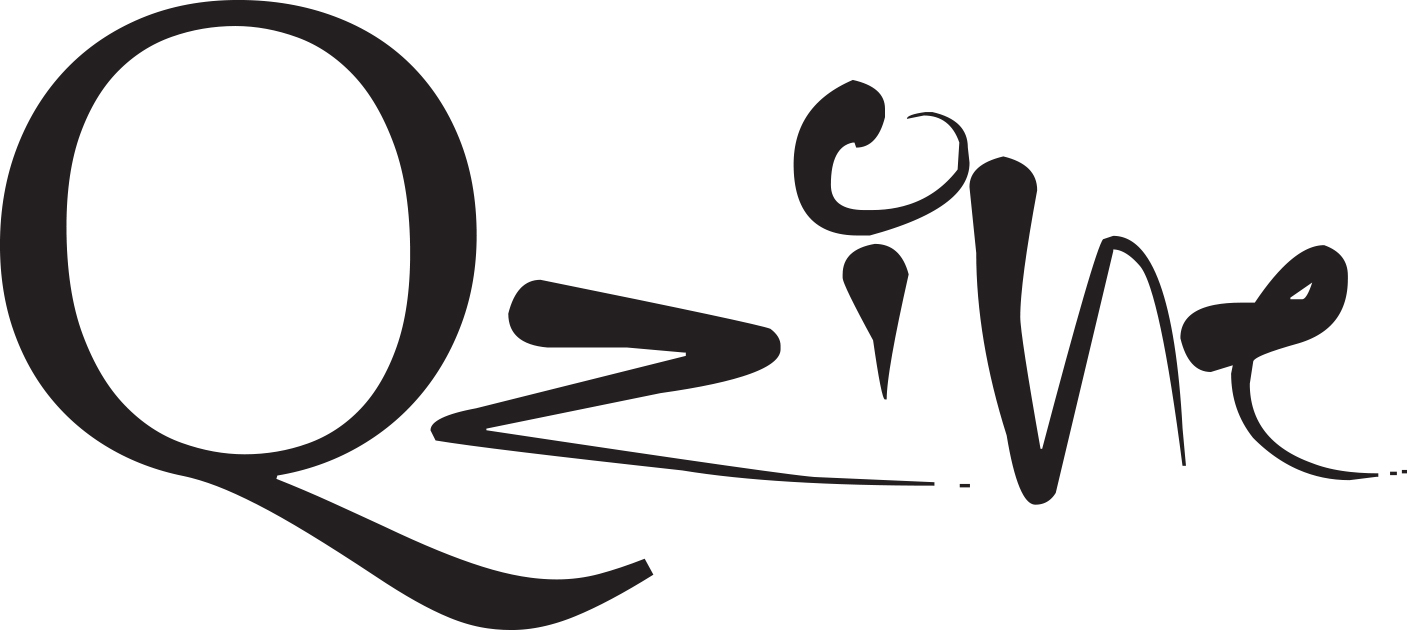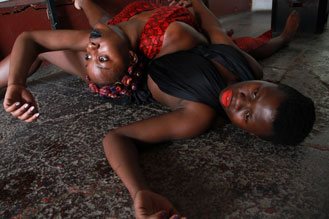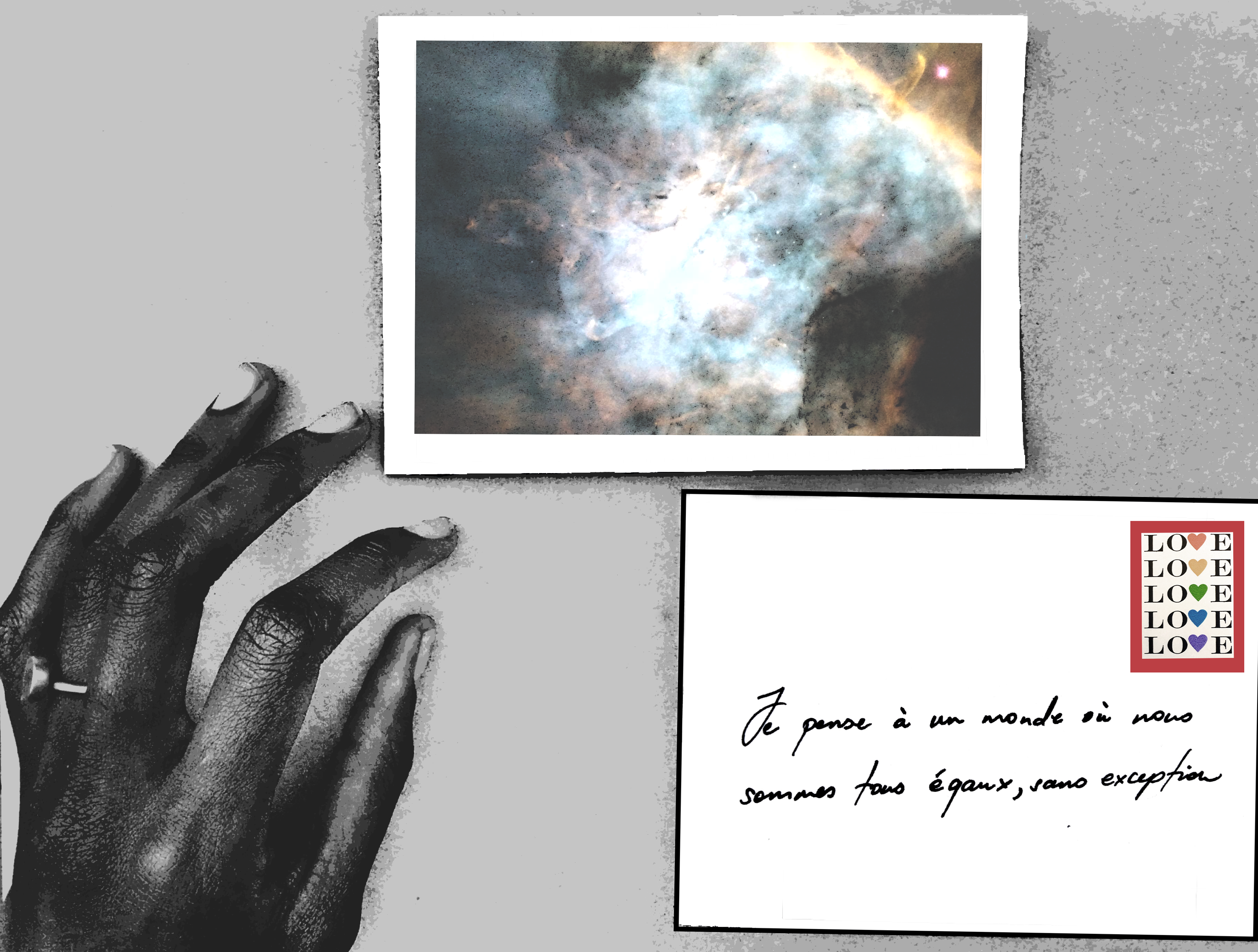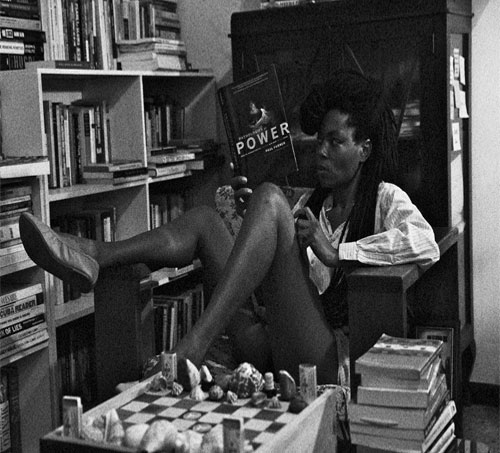An Elegy For The Heterosexuals In Medical School
By Maya Pillay. Photos by endotica.org
A leans across the table towards me and asks, “What would you do if I said I identified as an attack helicopter?”
This semester, A and I have been assigned to the same Problem-Based Learning group. Problem-Based Learning is common practice in medical schools all around the world. The idea is that everyone studies all the Pathology and the Histology and the Physiology and so on individually, and then meets in groups to discuss the problems. Problems are anything we don’t understand. The Problem-Based Learning sessions happen in the Anatomy building in small stuffy rooms with blue walls and windows that never open all the way. Our Problem-Based Learning room is particularly small. This is why A and I are in such close proximity. When he gestures his hand is too close to my face. His eyes are too close to mine. A has a problem that he’s brought to the Problem Based Learning session for someone to help him with, and the problem is this: he would like to know what I’d do if – hypothetically speaking – he said to me that he identified as an attack helicopter.
Sometimes when I speak to the other medical students there are dead bodies lying between us. As second years, all of us know what a dead body looks like from every conceivable angle. We know the muscles, pinkish and startlingly meagre when the skin comes off, and the pearly surfaces of the bones when the connective tissue is scraped away. We know the sheets of yellow fat, coarse and unyielding under our knives, and the dark smooth surfaces of the organs underneath. We’ve heaved corpses over to get at backs and shoulders, fingers grasping dead thighs, dead shoulders. But even though we spend hours with the bodies, up in the labs on Levels 4 and 5, even though – to be honest – tstudying medicine is just a roundabout way to study death, we don’t talk about death very much, except as an
abstract thing. The case fatality rate of so-and- so virus is 35%. The use of such-and- such drug may decrease levels of mortality in severe cases. Once the patient develops full-blown AIDS, there is a life expectancy of five years or less.
And we certainly don’t talk about the people who have died. Once someone’s dead, they’re not really our problem anymore. For example, A’s question has brought bodies onto the table. Several of them are now lying between us, having appeared quite suddenly with a gust of formalin. But in keeping with how things are done here, I won’t talk about them, the way their limbs are splayed, the ways in which they have been opened up, the ways in which they died.
“But why would you say that at all?” I ask. “That’s not ….”
B, who is sitting on the other side of A, leans in. “But you can’t say that,” he says, pointing a hand at me, all fingers extended. “You’d just have to accept it, wouldn’t you? See, this is the problem. You don’t know where to draw the line. Like, some of these things that people say they identify as … you have to draw the line.”
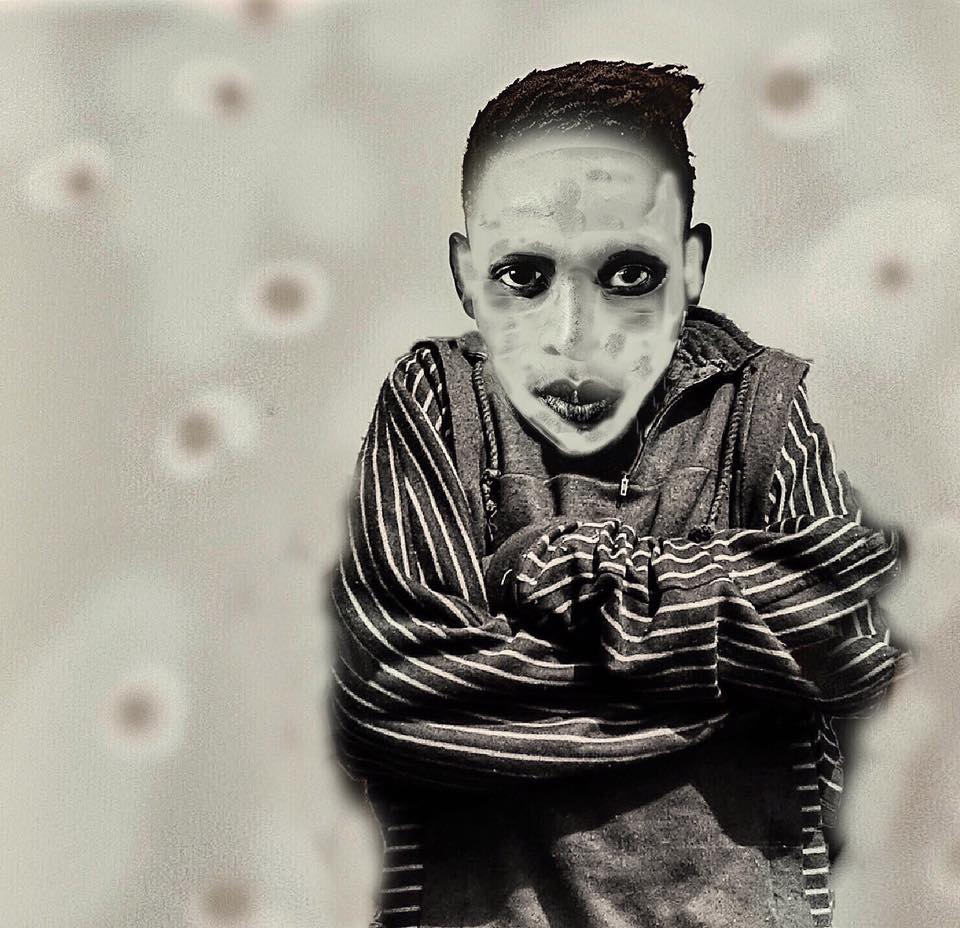
B said, “There has to be a limit. There has to be a line.”
When something is infected, you’ve got to cut it off.
On the other side of B, C – who had always struck me as an okay sort of person – asked him, “What do you mean? Say it, what do you mean?”
“I mean,” B said – he was visibly distressed, and at the same time A. was trying to say something to me, but I was too distracted by the way that B’s face was changing as he went on speaking – “you can’t just … like, it’s fine to say these things, you identify as whatever, you can say that, it’s fine, but you can’t … go out in the world and expect people to just … listen to you, and … do what you tell them, and …”
This was the strange thing I was seeing in Bs face and hearing in As voice: they were hurt. Something was hurting them. Probably it was the bodies that were steadily piling up between us. I was fairly sure I wasn’t the only one who could see them, and besides, the formalin smell was being replaced by another, stronger smell, and the wounds on the newer bodies were more pointedly placed. It was becoming impossible to ignore whose bodies they were. I had to shift slightly in my chair to see B at all, because there was an ashen foot in my way that had a little mortuary tag around its big toe.
It could have been the bodies but it could have been something else too, something smaller. This is the strange thing about heterosexuals. They remind me a lot of over-ripe pears, in that their skin yields easily, in that they are swollen with something soft and mealy which slides easily back over itself, which bruises and exudes at the slightest impact.
When I was around twelve or thirteen there was a hairdresser my mother would always take me to. She lived in Verulam, the little Indian town where my parents had grown up and where most of my family still lived. This woman – I don’t remember her name, so let’s call her Mrs W – was considered the best hairdresser around. That is to say she was very good at doing those terrible haircuts that were fashionable in the mid-00s, jellyfish-like ones with layers and flicks and unexpected streaks of blond and red all over the place. She ran the salon out of her own house, which was down the road from the temple and opposite the garage, but she was thinking of moving her business to Johannesburg in a year or two. Also, her daughter was a lesbian.
Everyone knew this. I knew it too, although I can’t remember how. It was just something that hung around in the air in that town. I probably learned it in an incident like this: my aunt leaning over to my mother and saying something about the hairdresser’s daughter having cut her hair short, not in a bob but short short like a man’s, dressing in her brother’s clothing, never having brought a boyfriend home. Something like that. You know how these things go.
Anyway, when it was time for my appointment my mother took me into the little back room in the house where Mrs W was going to take some length off, give me layers, maybe even some brown streaks if I was lucky. The room smelled of bleach and dye. The hairdresser herself had dyed her own hair a brassy sort of colour. She sat me down in the big faux-leather chair and put a cape over my shoulders, and just then the lesbian daughter walked in.
She really did have her hair cut so short it was clinging to her scalp in round curls. She really was wearing men’s clothing: baggy black pants in some shiny material, a green shirt that hung over her like a curtain. She’d come to tell Mrs W something about the garage door not closing properly. Her mother spoke to her in a hurried, hushed sort of tone. It was a summer day, with sun coming in thickly through the windows, and it bathed her in gold. It shone off her face so brightly I couldn’t make out her features.
I had never seen a lesbian before in my life. So this was what one looked like, then: a mass of dark fabric swaddling a golden mirror. After she left the room, I didn’t know what to say or do.
In high school I had this friend who we’ll call D. D wanted to study fashion design, although in the end his parents didn’t let him. For our matric dance, he glued the rhinestones to his suit himself. It took him an entire night.
I say we were friends, but it was a funny situation, because we didn’t really like each other much at all. He thought dark skin was ugly, and he’d fawn over white girls as if they were a different species from us. He didn’t like me because I was a sullen girl with a bad haircut who’d call him a cunt from time to time. But we had to be friends because we were both queers, although we never said that word out loud. One day in Physics class, sitting next to him, I wrote on the corner of a page of my workbook: I think I like women better, or something like that. And he drew a wonky heart next to it, or something like that. It’s hard to remember. It was a long time ago. Because of that, it was sealed: we had to be friends until we graduated, whether we liked it or not, because there was no one else.
D came from a conservative sort of family. He told me once that when he’d tried to come out his parents had threatened him with conversion therapy so he’d shut his mouth. Another time, he came to school with his face drawn tight with fear because his little brother had spotted the Grindr app on his cellphone. Another time, he slapped me right in the face, the way a child does – I forget over what – but I forgave him. I forgave him because in high school I really did feel myself to be the most alone person in the world. I forgave him because of his parents, and the boys in our grade who’d call him a fag, and the girls in our grade who’d call each other dykes (each other, never me; I was careful). And because of those tense moments of nakedness in the PE changeroom, staring desperately down at my own feet, in the fear that my eyes would stray and settle, like flies, on the bare skin of another girl.
I didn’t like him at all, but when we sat together in class and whispered to each other about getting away to UCT where there was a whole student society just called Rainbow, to Cape Town where we’d be completely free, I felt something like comfort. After we graduated I stopped speaking to him, but I heard a strange rumour from a family friend. This family friend told me that D’s mother was in denial, that she’d been going around telling everyone that the reason all D’s friends were girls was because we were all in love with him, and that I was the most besotted of all.
After I stopped laughing I thought about it a little harder and I realized it was true, or at least partly true, or true depending on what you meant by love. Because there was a part of D that I was very deeply in love with, simply because I was too afraid to love its double in myself.
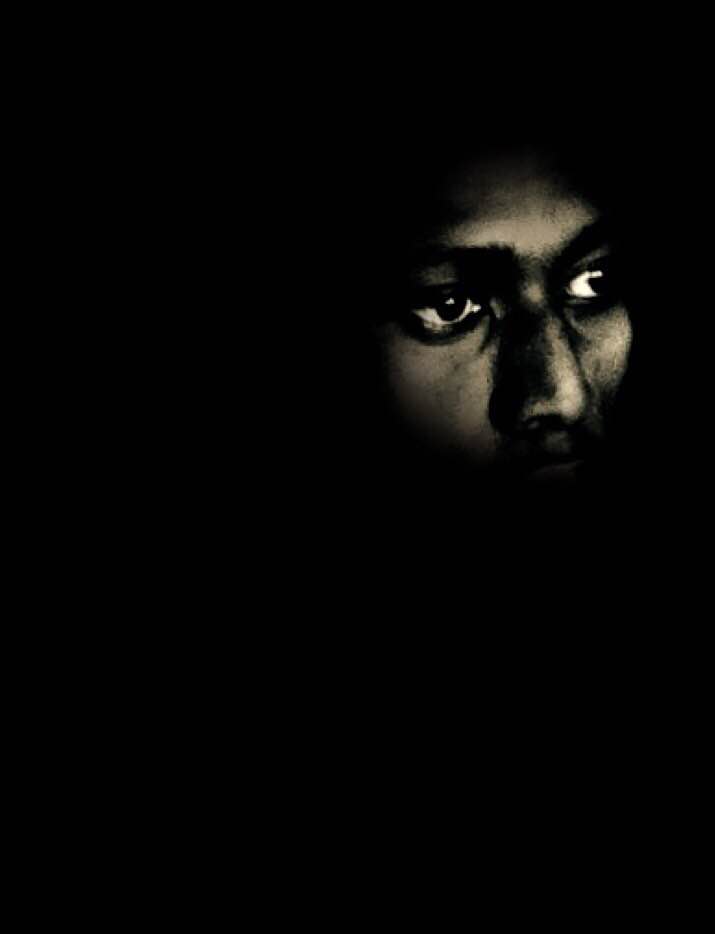
B said, “There has to be a limit. There has to be a line.”
When something is infected, you’ve got to cut it off.
On the other side of B, C – who had always struck me as an okay sort of person – asked him, “What do you mean? Say it, what do you mean?”
“I mean,” B said – he was visibly distressed, and at the same time A. was trying to say something to me, but I was too distracted by the way that B’s face was changing as he went on speaking – “you can’t just … like, it’s fine to say these things, you identify as whatever, you can say that, it’s fine, but you can’t … go out in the world and expect people to just … listen to you, and … do what you tell them, and …”
This was the strange thing I was seeing in Bs face and hearing in As voice: they were hurt. Something was hurting them. Probably it was the bodies that were steadily piling up between us. I was fairly sure I wasn’t the only one who could see them, and besides, the formalin smell was being replaced by another, stronger smell, and the wounds on the newer bodies were more pointedly placed. It was becoming impossible to ignore whose bodies they were. I had to shift slightly in my chair to see B at all, because there was an ashen foot in my way that had a little mortuary tag around its big toe.
It could have been the bodies but it could have been something else too, something smaller. This is the strange thing about heterosexuals. They remind me a lot of over-ripe pears, in that their skin yields easily, in that they are swollen with something soft and mealy which slides easily back over itself, which bruises and exudes at the slightest impact.
It’s probably important to know how this whole unpleasant Problem-based learning situation started. One of our assignments for the semester was to get into pairs and design posters spreading awareness of HIV, targeted at what are called “high-risk groups.” High-risk groups are groups with a higher-than-average risk of contracting or transmitting HIV. Every lecturer would give their own mumbling overview of the high-risk groups, although these varied. Generally, though, they included:
- young black women
- older black women
- pregnant black women
- black women
- sex workers
- MSM.
MSM stands for “men who have sex with men.” It’s a useful acronym, although it’s repeated so often I think our lecturers have been taught to say it to avoid saying other words. A few minutes before A asked his question, E, the girl who was paired with me, said “Oh, we’ll do sex workers,” and this prompted F – who was wedged uncomfortably at the corner of the table between me and A – to turn to A and say “Oh, in that case, we’ll do L-G- B-T- Barbeque.” I was surprised to find that something like that, something it feels silly even to write, hurt me. It still hurts me. You’d think that over the years I would have toughened up a bit more. But I’m like some sort of apple, something hard to the touch that punctures easily under fingernails or teeth or knives, something frail-cored.
I said to F, “I don’t understand why straight people are so offended by people identifying as what they’re comfortable with being.” Then there was a lot of noise. There were a lot of hands thrust very close to my face. G was saying timidly from across the table, “Well, she’s trying to say that it’s only straight people who’d be offended by something like that, because queer people are—well, they’re …”, and then B was saying “Who’s offended? Who’s offended?”, and the whole time I could feel something bright red crumbling to pieces in my chest in my chest. And F was saying, wildly, “No! No! You can’t generalise like that! You, generalising about heterosexuals, is just as bad as if I generalised about homosexuals, don’t you understand that?”
In high school I thought I was in love for the first time, although it’s hard to be certain. It was a long time ago, and I suspect I’d been trying to convince myself I was in love because it would make a good story. I won’t go into too much detail here. She was a friend of mine and she was straight, and I knew that, and I appreciated her all the more for it because it hurt a lot and I was only just learning about pain, and also it meant I didn’t really have to do anything because there was no chance anyway. Once, we were sitting on the clover patch behind the Physics classroom, and I was talking to her about the first time I’d ever seen porn.
I told this story a lot in high school because it made people laugh. The first pornography I’d ever seen was a sidebar ad on some website I’d found myself on when I was about ten or eleven years old. I don’t remember what website it was, but it was somewhere I probably shouldn’t have been. At that age, the Internet really did seem like a physical space, a place with rooms and corridors I could move around in. I’d already learned how to instantly minimise whatever I was looking at when one of my parents came into the room, because they were bound to find something wrong with it. I was always good at doing the wrong thing.
In the sidebar ad someone was fucking themselves with a dildo. Even though I had a vagina, I’d never really taken a good look at it before, so when I saw the ground-meat colour of the inside of this pornstar’s labia it terrified me instantly. And the movement, the way their wrist was twisting around the black plastic of the dildo, I’d never seen anything more frightening. I stared at it for a long time, fixated. Between the redness and the violence of the movements, I thought they’d hurt themselves. For some reason everyone always found it hilarious when I told this story in high school. Maybe I was better at telling stories then. When I told the story to my crush behind the Physics lab, she laughed and laughed and told me how fucking stupid I was.
She often told me I was stupid. It hurt a bit, but as I said, I was just learning how to feel that sort of pain. I came out to her in confidence halfway through matric, and after that, strange things would happen. She’d touch me more often. Or did I just imagine this? Maybe it was just wishful thinking. It was a long time ago. One night we went to a bar and I remember her boyfriend saying things to me, shouting really, but the music was drowning him out. He was telling me what it was like to have sex with her, I think. I nodded and smiled and pointed to my ears and shook my head. I drank my rum and coke and it was vaporous in my mouth.
At the bar a much older man stood behind me and put his hand right on the top of my thigh, his fingers sliding very slowly forwards, and she congratulated me on this. Afterwards I slept over at her house. She had a single bed. I lay awake next to the warm mass of her and thought about pain for a long time. That night I realised that pain wasn’t something external that was visited upon me. It was something I had been born with. It existed as a reservoir inside me that, in adolescence, was just beginning to crack open.
This is A’s next problem. A said to me, “Ok, so what if – what if an old man, a forty-year old man, identified as a little boy so that he could have sex with little girls?”
I said, “What the fuck?”
There were so many bodies cluttering the table now I had to sit up with my knees tucked under me just to see his face. They were wearing all kinds of different things. Some of them were wearing those horrible 80s shirts with the bright colours and patterns. Some of them were wearing saris and some were wearing dresses of sweshwe fabric and some were wearing army uniforms and some were wearing school uniforms and some – most – were wearing nothing at all. Some of them belonged to
people who weren’t dead yet but soon would be. All the eyes, which were still open, glazed or weeping something or other, were fixed on me.
B looked at me, and then he said to A, “Don’t you ever think before you speak?”
“You couldn’t say no,” A said. His hands were shaking. A is going to be a doctor soon. All my classmates are. A wants to be a psychiatrist. “You’d just have to accept him, because by your logic, that would be okay. You couldn’t say no to him.” The dead queers were watching me to see what I’d do. My classmates were watching me to see what I’d do. What I ended up doing was nothing. My mind had gone blank as if preparing for another, an impending blankness. There was nothing left for me to say, and if I’d opened my mouth again, I don’t know what would have come out of it – semen, blood, vomit, someone else’s voice. Because the silence went on for too long, someone said, “Okay, let’s just move on to the next question.” That afternoon, F sent me a message, apologising. I have the message open on my phone now. It says I just wanted to apologise for today. The remark I made was immature and culturally insensitive. I shan’t do anything like that again. I hope that we’re good though.
I replied right away. I said It’s all good! I’m glad you understand what’s up and I’m always here to discuss these things if you’re unsure. Sorry if I got a bit deep, I know you didn’t mean any harm, it’s just very frustrating to hear these things. See you Friday!
It’s all good!
Sorry if I got a bit deep!
I know you didn’t mean any harm!
Halfway through a panic attack, I sent that message on the 22 nd of August, 2016. On the 4 th of December that year, I read about what happened to Noluvo Swelindawo, in Khayelitsha, with the gun.
I’d look up from my phone and see her body before me, on that footbridge, in the dark, and I’d recognise her face. And then I’d reread those messages, and become senseless with rage. We grew up apologising after all. Actually, now that I think of it, our whole lives are long apologies, long prostrations, long pleas for forgiveness. Being born as something so off, smelling of something dead, leaking fluid onto the carpets, you’ve got to start saying sorry as soon as you learn to speak. I saw the bodies and I knew what they wanted from me and yet there I was, telling the straight man: it’s okay, I’m sorry, it’s okay, you didn’t do anything wrong. Because I didn’t want to go too far. Because you have to draw a line somewhere.
When I was very young, about seven, my mother was driving me home from my friend H’s house. In a friendly voice, she asked me, “Did you know that H knows what gay means?”
“What?”
“H. Her mother told me that she knows what it means for someone to be gay. Did you tell her that?”
“No, I don’t think so.”
“She must have found out from someone else then,” my mother said. “Her mother asked if it was you who’d told her that. It’s ridiculous, don’t you think? Everyone should know what gay means. It’s the twenty-first century.” And then she kept right on driving. It was in the car on the way home from my last matric exam that I told her I was bisexual. The word turned to a rock in my mouth. For a long time, she was quiet. When she started speaking again, it was to tell me that she’d support me, even if she didn’t understand. But it was already too late. She’d missed a turn, she’d gone too fast, I’d made her run a red light, or something like that.
I told myself that today (28 th of January, 2017) I’d finish this whole mess of a piece, but that doesn’t look like it’s likely to happen. On Friday, there was a Problem-Based Learning session that I didn’t attend. I couldn’t. I could barely get out of bed on Friday. Or maybe I’m not remembering correctly. It
was a long time ago.
F messaged me to ask if I was OK. And I thought … I don’t know what I thought but I said to him, That past incident of queerphobia made it fucking hard for me to be in PBL. That message I sent to you saying “all’s good” was sent in a spirit of fear and panic. . .y’all’s bigotry dragged up a lot of terror regarding my queerness. . .so I’ve been frightened and panicky about being in PBL since I know what you really think about queers.
And F had this to say in response:
Okay.
I think I’ll leave you be rather than upset you further.
I can’t defend myself for past bigoted actions, but I do hope you feel better in the future.
Apples and pears, apples and pears. Apples and pears and every other fruit. This is what queerness is:
carrying a smashed thing around inside you forever, only you’re not sure if you were born with it broken or if someone broke it for you so early that you may as well have been born with it broken. And you don’t know what it is, a broken vase, a splintered window, a torn garbage-bag, nestling in the curve of your aorta, but you know you’ve got to keep a close hold on it in case someone – a stranger, your neighbour, your brother, your doctor – catches a glimpse of it.
For the record, A, if you told me you identified as an attack helicopter I wouldn’t begrudge you a fucking thing. I’d fill you with any fuel you wanted, I’d kiss the scratches from your paint. I’d lick the dust from your body. I’d pick the glimmering down from between your spinning blades so you could fly higher and higher. I’d load you with ammunition and I’d watch you leave for work every morning, ascending, a great golden corpse in the sky. What a mess. What a fucking mess, I’m sorry, I’m sorry.
